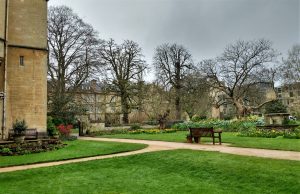 ‘They are not long, the days of wine and roses.’* This is, unfortunately, true. The hours of wine and rowdies, however, can feel very long indeed. Welcome to Coach A, the Quiet Zone.
‘They are not long, the days of wine and roses.’* This is, unfortunately, true. The hours of wine and rowdies, however, can feel very long indeed. Welcome to Coach A, the Quiet Zone.
I was sharing the carriage with approximately 743 On-Train Revellers—memory may have distorted this slightly—and was feeling hot-flushy, claustrophobic and overwhelmed. All the usual signs were there: a commitment to noise and Having A Good Time, standing in the aisle, heavy daytime drinking coz-we’re-on-holiday, a lot of very loud laughing (often with a (more…)
‘The brief sum of life forbids us the hope of enduring long’ or ‘the shortness of life forbids us long hopes’ —Horace
They are not long, the weeping and the laughter,
Love and desire and hate:
I think they have no portion in us after
We pass the gate.
They are not long, the days of wine and roses:
Out of a misty dream
Our path emerges for a while, then closes
Within a dream.
Although this poem is about a great deal more than lost youth, still, the opening of stanza two is what was running round and round in my head while I was in Oxford, and when I contemplated my time there afterwards. For me, the lines chimed with a melancholy note; but I can equally see that there can be some comfort—if perhaps a coolish comfort!—in its reminder that everything passes. I love how that “everything” is so economically and powerfully evoked in the poem’s images: ‘the weeping and the laughter/ Love and desire and hate’, ‘the days of wine and roses’. However this poem hits you—and I think that can vary from moment to moment as well as from person to person—there is a plangent beauty in this brief, apparently-simple poem which makes it one to return to, whatever your current mood.
 … and I don’t mean in some metaphorical sense. It’s not an image for being efficient, or moving through existence effortlessly and with ease. Nope. It’s actual running. I know. You couldn’t be more surprised than I am.
… and I don’t mean in some metaphorical sense. It’s not an image for being efficient, or moving through existence effortlessly and with ease. Nope. It’s actual running. I know. You couldn’t be more surprised than I am.
When I was at boarding school we had to do these things called Standards, which basically meant that everyone with the requisite complement of limbs had to “do” every athletics event—track, field and (more…)
You can read a brief excerpt from this poem here; and if you scroll down that page you can find a link to A***** (the badplace™) where you can read the whole thing by clicking on the “look inside” thing about the book (itself called I Praise My Destroyer). It’s on pp. 4-6 of the book.
This poem is such a rich feast of images that I’m not going to attempt any kind of sustained, line-by-line comment; besides, you can see for yourself how it celebrates life in its dazzling variousness and glory. But I do want to say how much I love the way Ackerman treats the bewilderment we can feel, the puzzled, incredulous incapacity we experience, when we try to imagine our own non-existence. I mean, we know it in theory; but actually to realise it, to try to feel it…? Larkin tells us how ‘the mind blanks at the glare’;* here, Ackerman dramatises it, with the repetitions of ‘How can it all end’. And at the same time, the variety of her imagery suggests the wonder of the world, and her profound gratitude for the gift of being alive on ‘the startling Earth/for what seemed]/an endless resurrection of days’
‘Seemed’. That’s the crucial word there. This is a poem written by someone who’s looking mortality in the face and who, despite her struggles to realise it, finds herself more inspired than paralysed (unlike poor Phil…). On the contrary: Ackerman is determined to spend ‘all the coins of sense’. Further: she is ready to praise all of ‘our real estate—a shadow and a grave’. That is to say, she celebrates the life’s opposite, death: how it is a foil to life; how it allows life to shine so brightly in contrast with the impending darkness.
This poems stills and also inspires me. It refuses to let sorrow over the human predicament (the awareness of our own mortality) curdle into bitterness or fear. It’s not a lament but a hymn of praise. By looking death in the face Ackerman only deepens her love of life; and this determination to be as alive as possible, while it’s possible, is what I want to take from contemplating my mortality. Not in a panicked, ticking-things-off-a-bucket-list kind of a way, but in a revelling in the moment—any moment—sort of a way. For, as I read it, anyway, when Ackerman chooses to ‘praise [her] destroyer’, she’s not only praising death for sharpening and giving value and meaning to being alive. She’s also praising life itself, because life is what kills us. We can only die because we have been alive. That’s the deal.
So. ‘Come let us sport us while we may’…
*See ‘Aubade‘.
 Stripping off with a bunch of other people, variously familiar to me, in the chilly, cramped vestry of some hitherto-unknown church. Dressing for Saturday Night in modest, full-length black, then perching on a chair in an unheated church hall, eating squashed sandwiches. All the ingredients of a perfectly normal weekend for me.
Stripping off with a bunch of other people, variously familiar to me, in the chilly, cramped vestry of some hitherto-unknown church. Dressing for Saturday Night in modest, full-length black, then perching on a chair in an unheated church hall, eating squashed sandwiches. All the ingredients of a perfectly normal weekend for me.
I’ve been singing in choirs since I was about 7 (not continuously, obviously), and this has frequently involved doing gigs in (more…)
 ‘They are not long, the days of wine and roses.’* This is, unfortunately, true. The hours of wine and rowdies, however, can feel very long indeed. Welcome to Coach A, the Quiet Zone.
‘They are not long, the days of wine and roses.’* This is, unfortunately, true. The hours of wine and rowdies, however, can feel very long indeed. Welcome to Coach A, the Quiet Zone. … and I don’t mean in some metaphorical sense. It’s not an image for being efficient, or moving through existence effortlessly and with ease. Nope. It’s actual running. I know. You couldn’t be more surprised than I am.
… and I don’t mean in some metaphorical sense. It’s not an image for being efficient, or moving through existence effortlessly and with ease. Nope. It’s actual running. I know. You couldn’t be more surprised than I am. Stripping off with a bunch of other people, variously familiar to me, in the chilly, cramped vestry of some hitherto-unknown church. Dressing for Saturday Night in modest, full-length black, then perching on a chair in an unheated church hall, eating squashed sandwiches. All the ingredients of a perfectly normal weekend for me.
Stripping off with a bunch of other people, variously familiar to me, in the chilly, cramped vestry of some hitherto-unknown church. Dressing for Saturday Night in modest, full-length black, then perching on a chair in an unheated church hall, eating squashed sandwiches. All the ingredients of a perfectly normal weekend for me.